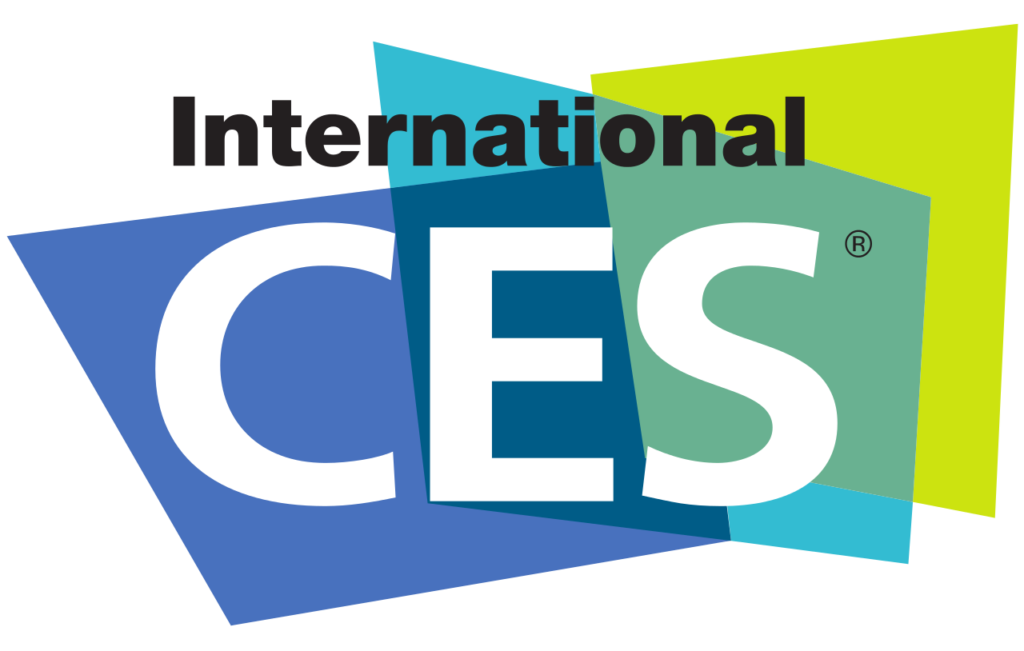The annual International CES, formerly known as the International Consumer Electronics Show, held annually in Las Vegas starts each new year with a bang. Prominently featured at this year’s show were products incorporating artificial intelligence (AI). Although the CES is focused on consumer products, many of the technologies displayed at the show find their way into the business world as well. Mike Freeman (@TechDiego), notes, “CES attracts more than 3,800 exhibitors under 2.5 million square feet of floor space. More than 175,000 product buyers, industry analysts and journalists attend. It is not open to the general public.”[1] The following video is the teaser released to attract participants to this year’s show.
Brian X. Chen (@bxchen) reports some product categories featured prominently at this year’s show were: high-definition television sets, smart-home accessories and drones.[2] Below is a brief discussion of some of the products and product areas that caught the eye of the media.
4K Television
When high definition television was first introduced, it was met with some skepticism. There were few stations offering HD programming and people wondered whether clearer pictures were worth the exorbitant prices manufacturers were asking for their products. As we now know, programming increased and prices fell. Now we wonder why we ever questioned the arrival of HDTV. Chen reports the latest generation of HDTV (aka 4K) is on the verge of becoming the standard of future television viewing. He asserts, “Buying a 4K television set finally makes sense.” Among the improvements and new features to 4K television sets introduced at the CES were: “Color technologies like high dynamic range, a software feature that enhances the contrast and color profile of a picture, and wide color gamut, a technology that shows a wider range of colors. Some TV manufacturers, like LG, [introduced] TVs that are only a few millimeters thick and easily mountable on a wall.” He also notes that prices for 4K are becoming more affordable. Additionally, “there are now many devices capable of playing 4K content, including 4K Blu-ray players, Sony’s PlayStation 4 Pro console and Roku’s higher-end streaming devices.”
Artificial Intelligence
“Already the most overhyped technology of 2016,” write Tim Bradshaw (@tim) and Richard Waters (@RichardWaters), “machine learning — the technique for training computers that is at the heart of recent advances in AI — [were] almost ubiquitous at this year’s CES. It powers the ‘brains’ of the self-driving cars that [were] one of the show’s main attractions. AI is also at the core of the robots and drones that have been a novelty feature of the event for years, and that the consumer tech industry finally hopes to bring to a more mainstream market.”[3] In fact, it’s difficult to find a product category that doesn’t feature AI in some form or another.
Virtual and Augmented Reality
“Virtual reality (VR) and part-artificial augmented reality (AR) technology have been wildly popular,” writes Doug G. Ware. “At CES this year, this corner of the computing market is expected to skyrocket.”[4] Jess Conditt (@JessConditt) observes, “Games are the most natural expression of everything VR has to offer, showcasing the platform’s ability to immerse and engage users in new ways. … The day is near when video games will be barely distinguishable from reality, whether they’re beautifully rendered in 4K on a curved OLED TV, presented directly on our faces in a VR headset, or projected onto the existing world via AR.”[5]
Personal Assistants and Voice Control
Bradshaw and Waters report, “Amazon’s smart speaker, Echo, has been a breakout hit in the past year, inspiring competition from Google with its own Assistant and driving Apple to revamp Siri in the latest iPhone. Alexa, the disembodied voice inside Echo, and Microsoft’s rival Cortana will appear in all sorts of third-party hardware over the coming months, as device makers look for a more natural and intuitive interface than forcing users to download yet another mobile app.”
Smart Homes/Internet of Things
Michael E. Hayden (@MichaelEHayden) reports, “The concept of the ‘smart home,’ a living space that is guided by tech and artificial intelligence, is a major theme at this year’s Consumer Electronics Show (CES). … Smart home technology has featured prominently at the annual CES conventions over the past few years, and the arrival of Amazon’s Echo, which emerged into greater public consciousness in recent weeks for serving as the ‘witness’ to the suspicious death of an Arkansas man, has only strengthened the public appetite for greater domestic efficiency through the aid of technology. But the 2017 conference features more nuanced smart home devices than the Echo — some of them tailored for people with special needs, or health conditions. The products also aim to improve upon domestic chores you might not have known could be aided by tech, like caring for your hair.”[6] Nicole Lee (@nicole) adds, “Google Home also points at another trend in IoT — artificial intelligence. The idea behind Google Assistant is that it integrates with your email and your calendar. It can learn your daily routine and, potentially, improve them. We’ll likely see more of that AI and machine-learning integration in all manner of consumer electronics, which may or may not be a little creepy.”[7]
Self-driving Cars
Roberto Baldwin (@strngwys) reports, “With this year’s orgy of gadgets just around the corner, the automotive industry is hoping to grab even more of the tech-news cycle with bolder electric vehicles and a fleet of autonomous cars. … Nearly every major automaker is hosting a press event. Nissan, Toyota, Fiat/Chrysler, Hyundai, Honda and BMW will all be either showing off new or concept hardware or will be talking about the future of driving. Not to be outdone by the old guard, Faraday Future will be unveiling its first production vehicle. … Self-driving, while still years away, will get plenty of stage time —- not just from the car makers but from companies like Delphi, NVIDIA and Mobileye, which make the feat possible.”[8]
Drones
Chen reports, “Drones are getting cheaper, and lesser-known Chinese companies are increasingly getting into the drone business to drive prices down even further. Cheaper drones are expected to have a strong presence at C.E.S., and some popular drones representing well-known brands have already dipped in price.”
Summary
As noted at the beginning of this article, many of the technologies aimed at consumers are likely to find themselves used in the business world. The Internet of Things, drones, virtual and augmented reality, and mobile technologies are just a few of the technologies that have already found a home in the business world. The International CES always provides an interesting glimpse into the future.
Footnotes
[1] Mike Freeman, “CES: 5 things to watch at the biggest tech show of the year,” The San Diego Union-Tribune, 2 January 2017.
[2] Brian X. Chen, “What to Know About CES 2017,” The New York Times, 4 January 2017.
[3] Tim Bradshaw and Richard Waters, “Five trends to watch out for at CES 2017,” Financial Times, 3 January 2017.
[4] Doug G. Ware, “CES 2017 preview: Artificial intelligence, Smart tech highlight of this year’s show,” United Press International, 4 January 2017.
[5] Jess Conditt, “What to expect at CES 2017 – Games,” Engadget, 2 January 2017.
[6] Michael Edison Hayden, “CES 2017 Highlighted by Helpful Robots, Smart Hairbrushes, Flying Cameras,” ABC News, 4 January 2017.
[7] Nicole Lee, “What to expect at CES 2017 – Internet of things/connected home,” Engadget, 2 January 2017.
[8] Roberto Baldwin, “What to expect at CES 2017 – Cars,” Engadget, 2 January 2017.





